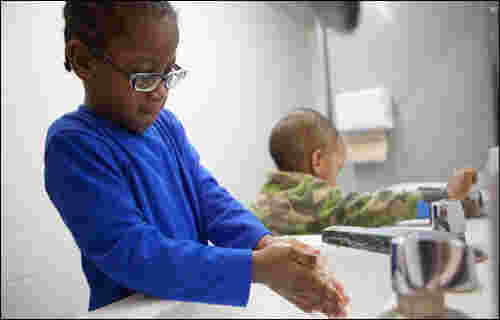Clean hands you need to stay healthy, germs are everywhere which is a universal truth and no one can deny it. When you touch a surface, germs contact your hands. People used to touch the face every 5 minutes with their hands which made it easy for germs to spread from surface to face.
Even viruses, yes they all spread through hands most of the time. For example, coronavirus and other viruses can spread with hands. When the WHO declared COVID-19 a pandemic, CDC issued the precautions in which washing hands was one of the most important steps that every person should follow to minimize the risk of the virus spreading.
CDC recommends washing your hands with soap and water for at least twenty seconds when you come from outside or do any activity or sneeze or cough.
Doctors say that people with a weak immune system should also practice hand washing properly as their bodies cannot defend against viruses as people with a healthy immune system do.
In this way, you can protect yourself and also others from the many potential diseases. These diseases may include respiratory infections, like gastric infections, and pneumonia which may lead to loose motion or diarrhea.
It does not matter that you need to get sick to follow this practice. You should wash your hands before and after doing activities.
People with a weak immune system are at risk of infections, such as babies, children, older adults, etc.
Let’s explore how you should wash your hands.
Green mask stick is good or bad
How to Wash Your Hands?
To reduce bacteria, you should wash your hands properly. Only water is not enough as you need a good soap to reduce the bacteria on your hands. You do not need to find an antibacterial soap but a good or mild soap is also effective. You should practice the following steps to wash your hands:
- Wet your hands with clean water and use soap to cover all the surfaces.
- Make sure to rub palm to palm in a circular motion.
- Palm over the back of your hand using your interlaced fingers and change your motion into a back-and-forth.
- Rub the palm then interlocked your fingers
- Clasp your thumb
- Wash your wrist
- Use clean water to rinse your hands
- Use a towel to dry your hands thoroughly
When you should wash your hands
People should not wait for too long to wash their hands. The best hygiene practice is to wash your hands frequently. When you go out in public places, make sure that you wash your hands after coming back. There is a high risk that you get into contact with different kinds of germs which may cause infections.
You may touch different objects when you go out that can put you at high risk, including:
- Cash register
- Shopping carts
- Doorknobs
- Gas pumps
- Trash cans
When you go into the kitchen, you must wash your hands before cooking or eating anything. We cannot see the germs with naked eyes which may lead to serious infections. You should be more careful when you touch fish, meat, eggs, raw chicken, etc.
In daily life, you need to take care of the small things that you do. There are some tips for personal care that you should keep in mind, such as:
- Wash your hands after using the toilet
- Before changing contact lenses
- After intercourse
- After visiting a person who is ill
- Before using a first aid kit
- Before taking tablets medication
- When you are going to use eye drops
Other tips to keep your skin clean
Keeping your skin clean is crucial as it can help to minimize the risk of infections. You must wash your hands more frequently as it will prevent infections. Hands are more in contact with other things and if they are bleeding, then it may lead to more infections. Germs and bacteria can easily enter your wounds and cause serious infections.
Bar soaps can contain some germs. You may need the liquid soap which you can use to wash your hands. Liquid soap should be used in all places.
Shower hygiene is also crucial that can help you get rid of dead skin cells. Bacteria and oil should also be rinsed throughout your body. Personal hygiene is necessary to get rid of bacteria and germs.
Trimming your nails can also help to minimize the risk of infections. When you wash your hands then keep your nails clean. If you trim them, it will help to reduce the risk of infections and germs.
Final thought
Experts say that personal hygiene can help to reduce the risk of infections. Make sure that you wash your hands thoroughly and do not touch public objects as it contains more germs and bacteria. If you feel any symptoms of infection, consult the doctor before symptoms can get worse.
